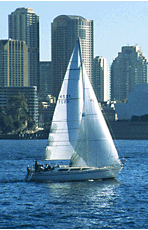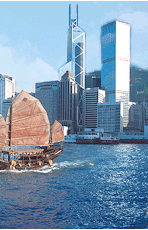Somers, New York????
Posted by doug at May 11, 2007 04:18 PM
Somers....that's pretty good lol.
Does Bhutan have the internet? I think even Burma has the internet so that can't be it.
Posted by Paul at May 12, 2007 12:31 AM
The jungles of Papua New Guinea? Otherwise I'm with Paul on Bhutan...
Posted by Ali at May 12, 2007 08:13 PM
I think Bhutan does have the Internet.
Posted by doug at May 14, 2007 11:25 AM
It was Bhutan, and I stand corrected, they do have internet there, at least in some of the places I visited.
Normal service to resume in the next day or two.
Posted by Simon at May 22, 2007 01:17 PM
癌症
肿瘤
胃癌
肺癌
肝癌
白血病
鼻咽癌
大肠癌
宫颈癌
膀胱癌
食管癌
食道癌
乳腺癌
抗癌新药
肾癌
胰腺癌
胆囊癌
直肠癌
甲状腺癌
脑膜瘤
恶性黑色素瘤
恶性淋巴瘤
阴道恶性肿瘤
卵巢癌
绒毛膜癌
子宫内膜癌
阴茎癌
睾丸肿瘤
前列腺癌
肝病
乙肝
丙肝
脂肪肝
肝纤维化
肝硬化
肝性脑病
紫杉醇注射液
开普拓
美罗华
赫赛汀
天地欣
香菇多糖
艾普升
宁得朗
康士得
诺雷得
瑞宁得
芙瑞
瑞婷
法乐通
易瑞沙
多吉美
特罗凯
泰勒宁
路盖克
Posted by 肝病治疗 at May 23, 2007 10:35 AM
癌症博客
癌症博客
癌症博客
45度博客
东方博客
Posted by 癌症治疗 at May 23, 2007 10:41 AM
好狗网 博美 藏獒 吉娃娃犬 迷你品 蝴蝶犬 中国冠毛犬 松狮犬 德国牧羊犬 贵宾犬 好狗论坛 狗的种类 吉娃娃 中国冠毛犬 日本仲 迷你品 蝴蝶犬 北京犬 博美 贵宾犬 八哥犬 西施犬 玛尔济斯 约克夏梗 丝毛梗 艾芬品 澳洲牧牛犬 古代长须牧羊犬 比利时牧羊犬 德国牧羊犬 喜乐蒂牧羊犬 边境牧羊犬 柯利牧羊犬 狗的种类 狗狗的饲养 狗狗的生育繁殖 狗的美容护理 宠物狗的训练 狗的医疗 玩赏犬 牧羊犬 工作犬 狩猎犬 运动犬 非运动犬 梗犬类 大白熊犬 斗牛马士提夫犬 秋田犬 大丹犬 马士提夫犬 西伯利亚雪橇犬 腊肠犬 比格犬 灵缇 拉布拉多寻回犬 松狮狗 沙皮狗 美国爱斯基摩犬 斑点狗 英国斗牛犬 波士顿梗 牛头梗 猎狐梗 罗威士梗
Posted by fgshfgh at May 29, 2007 04:51 PM
« hide
comments
sounds like the tourism sector has the wrong idea about how to earn money. of course, they'll take credit for this rise in spending.
the tourism sector would do well, in my opinion, to stop supporting the tourism cartel and open up the market for more choice, better options and self will. though, the last one is more of a philosophical problem, not inherent to the tourism industry.
Posted by doug at May 8, 2007 12:35 PM
« hide
comments
When is the SCMP's webpage supposed to be updated? I thought that was already supposed to have occurred by now?
Posted by Paul at May 5, 2007 02:54 PM
hi my name is naji ..iam lebanese lives in mexico..i have been in china and macau before ..and hong kong as well..and now iam in mexico visiting my parents..i love hong kong and macau a lot and iam planning to go there now...just i wanna ask u some thing..and a favour at the same time..is it possible to find a job over there..or u can help me to find one..or u can reach me to agency or some thing like that..hope to hear from u soon..thank u very mush.
Posted by naji nabih alkontar at May 7, 2007 10:41 AM
Hi man! Your site is cool! Please visit my homepage:
Posted by Cathy at May 11, 2007 05:05 PM
Your site looks great! Please visit my homepage too:
Posted by Coble at May 11, 2007 05:05 PM
I just want to say thank you for taking the time & effort for put this web page together! Would you please also visit my homepage?
Posted by Helen at May 11, 2007 05:05 PM
Hi people! Great job! Visit my sites, please:
Posted by Rose at May 11, 2007 05:05 PM
Hi! Good Site! Keep Doing That! Please visit my homepage:
Posted by Chapman at May 11, 2007 05:06 PM
First time here on your site. I am delighted to find your wonderful website online. Please visit my homepage:
Posted by Kathy at May 11, 2007 05:06 PM
Hi! Your site is very nice! Please visit my homepage:
Posted by Cathy at May 11, 2007 05:06 PM
I really enjoyed this page. I will be linking and I will be trying to read and research all that there is to offer from this site! Visit my sites, please:
Posted by Franklin at May 15, 2007 03:29 AM
Very well! Your site is neat! Please visit my site too:
Posted by Jeff at May 15, 2007 03:30 AM
Exelent! Good work! Would you please also visit my homepage?
Posted by Marsha at May 15, 2007 03:30 AM
Really nice and interesting website. Thank you a lot! Please visit my homepage:
Posted by Steve at May 15, 2007 03:30 AM
First time here on your site. I am delighted to find your wonderful website online. Please visit my homepage too:
affordable health insurance online college degrees home mortgage payday loans rolex replica health insurance online casino gambling mortgage loans credit scores best online casinos fast cash home equity loans debt relief refinance mortgage poker games
Posted by Johnie at May 16, 2007 11:14 AM
Thanks bro! Real good work! Please visit my homepage too:
debt settlement credit card debt debt elimination insurance quotes online gambling replica watches forex trading mortgage rates mortgage leads life insurance unsecured personal loans credit counseling mortgage broker bad credit personal loans health insurance quotes
Posted by Jeff at May 16, 2007 11:15 AM
Good site, nice design! Please visit my homepage too:
insurance quotes unsecured personal loans debt settlement online casino gambling auto loan calculator car insurance quotes fast cash cash advance home based internet businesses debt consolidation automobile insurance forex trading auto insurance quotes debt relief cheap car insurance
Posted by Sharon at May 16, 2007 03:49 PM
I liked this site, it's neat. Good job! Please visit my homepage too:
replica watches affordable health insurance homeowners insurance auto loans credit card debt refinance mortgage student loan consolidation debt counseling debt consolidation loans bad credit personal loans rolex replica mortgage leads personal loans cheapest airfares diet pills
Posted by Elisa at May 16, 2007 03:50 PM
Great site. Keep doing. cheap ephedra ephedra diet pills valium buy valium buy valium online order valium discount valium cheap valium valium no prescription valium without prescription valium free shipping Good-bye!
Posted by Hairston at May 18, 2007 04:30 PM
wcg6dhxqd http://www.247555.com/871823.html kj329rpv5145wp
Posted by 4e6o4txqxf at May 21, 2007 12:18 AM
Hi! Your site is very nice! Would you please also visit my homepage?
consolidation debt credit card debt credit card debt consolidation credit counseling debt consolidation debt consolidation loan debt consolidation service debt reduction debt relief debt solution discount auto insurance fast cash advance free debt consolidation health insurance quotes home equity line of credit
Posted by Thomas at May 25, 2007 04:47 PM
Hi there! Your site is cool, indeed! Please visit my site too:
eliminate credit card debt insurance quote term life insurance bad credit mortgage loans for bad credit mortgage refinance casino gambling cash advance loans online slots debt relief home mortgage debt settlement debt consolidation loans credit card consolidation consolidate debt bad credit loans online betting bad credit car loan health insurance individual debt solution
Posted by Wallace at May 31, 2007 04:07 PM
Thanks for your great site! Would you please also visit my site?
cheap health insurance student loan debt consolidation pay day loan auto insurance rates health insurance plans bad credit home loans cheap auto insurance refinance mortgage online blackjack forex trading mortgage lenders payday advance best mortgage rates mortgage loan online casino gambling life insurance quotes cash advance term life insurance quote debt consolidation service credit card debt consolidation
Posted by Phillip at May 31, 2007 04:08 PM
« hide
comments









